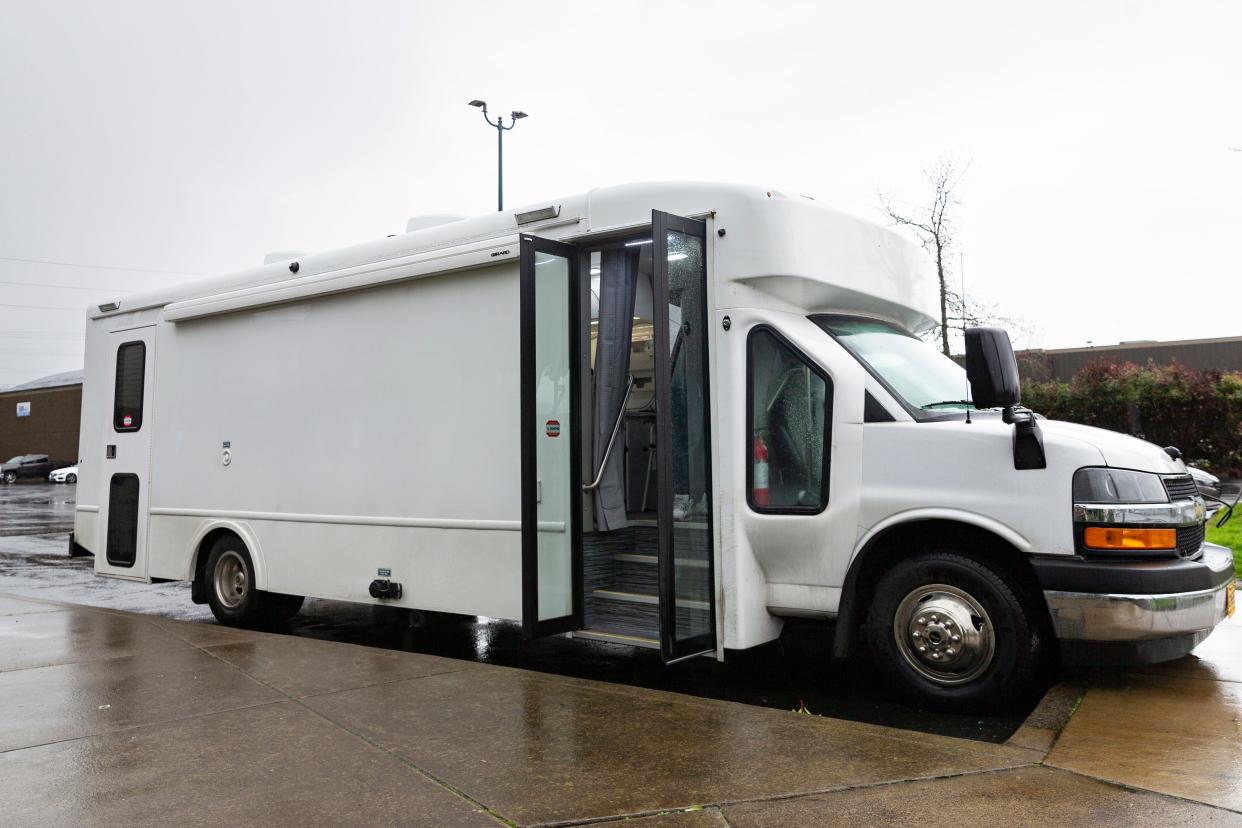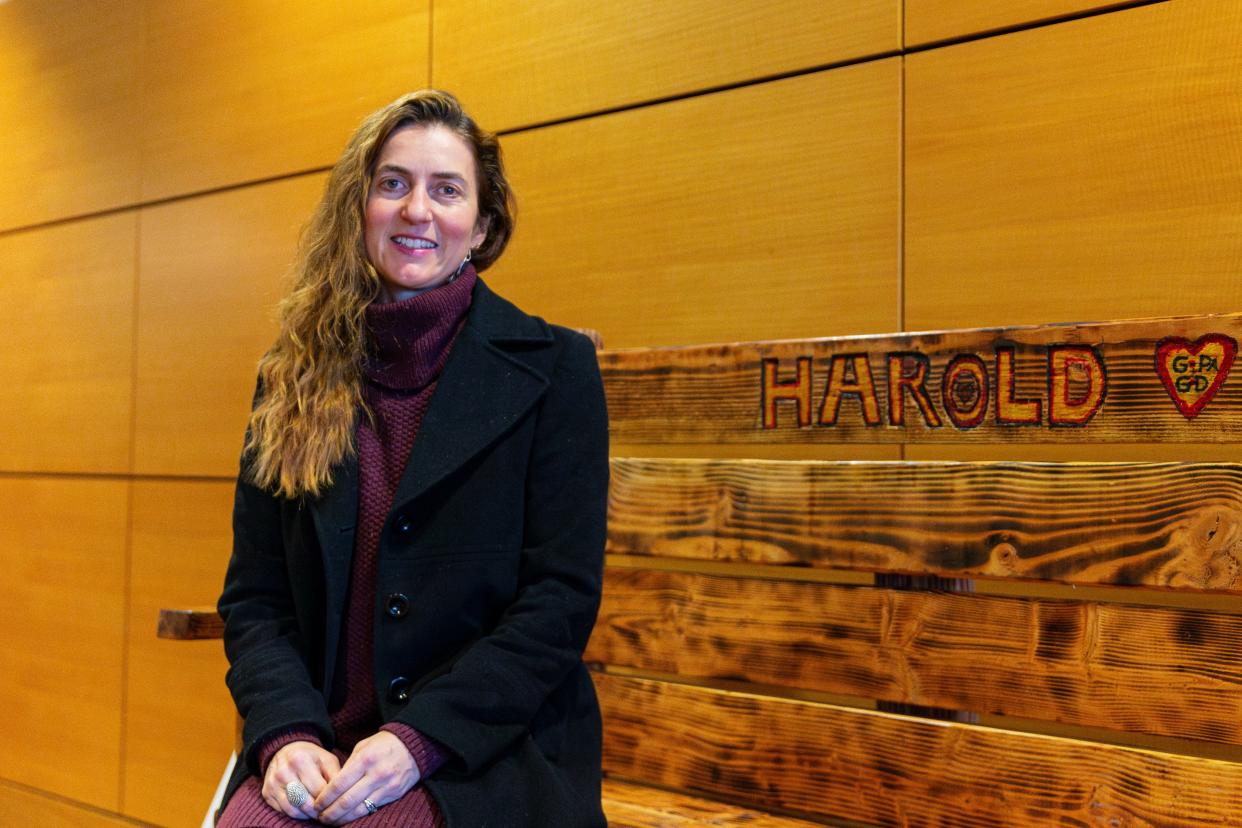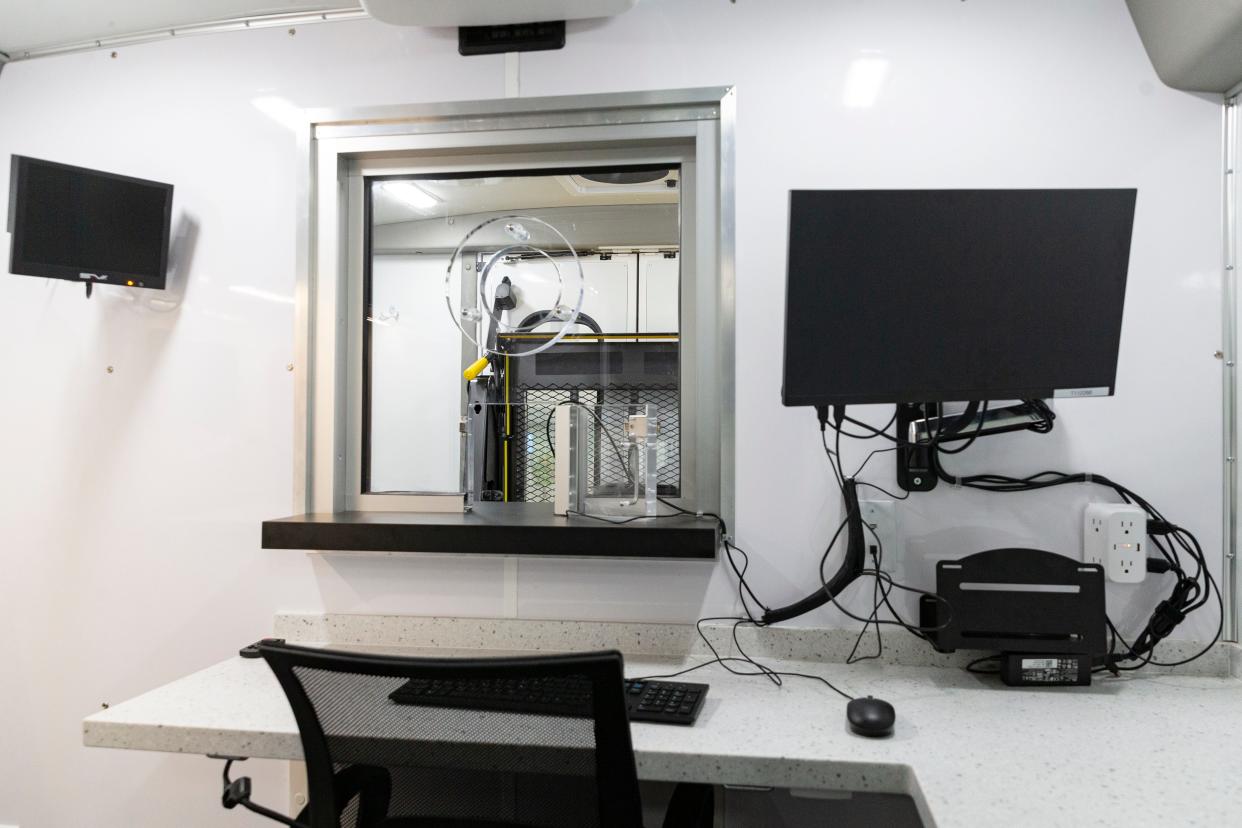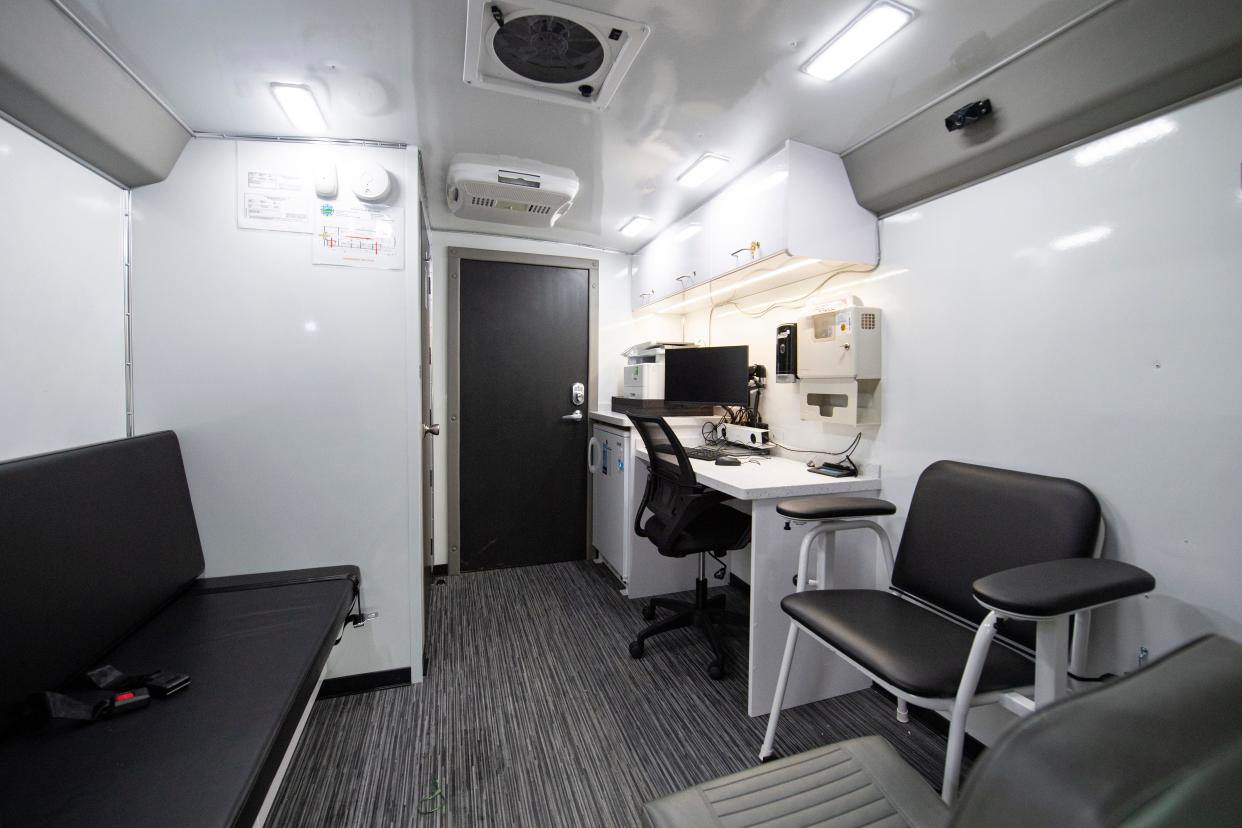Grand Ronde mobile methadone clinic brings opioid use treatment to Oregon tribes

Every week, Monday through Friday, a van leaves Great Circle Recovery in Salem and drives to Grand Ronde to provide opioid use disorder treatment to members of the community.
The Grand Ronde mobile clinic is the first of its kind in Oregon. It has been operating for nearly two years, providing a range of services, including methadone treatment, drug and alcohol counseling and connecting people with resources for food or clothing.
The clinic is a part of Great Circle Recovery, a medication-assisted opioid treatment center owned by the Confederated Tribes of Grand Ronde.
Great Circle Recovery has locations in Salem and Portland, serving people struggling with opioid addiction regardless of whether they are members of the Indigenous community.
Methadone must be administered in a clinical setting, so the mobile clinic helps reduce the barrier of transportation for those in rural areas.

“Mobile is really a way to meet people where they're at and lowers barriers to treatment,” said Jennifer Worth, operations director for Great Circle Recovery.
Bringing the clinical setting to those who otherwise might not have had the ability to receive care is a huge step, Worth said. She hopes actions like this continue to help lower the stigma of taking medication to treat opioid use disorders.
Heavy regulation and stigma of methadone reduce access to care
Methadone is a highly effective treatment for opioid use, but because it is a narcotic, it also is highly regulated.
Methadone is an opioid agonist, which means it works by binding to the same brain receptors a drug like fentanyl or heroine would, satisfying the brain’s need for that drug and reducing the effects of withdrawal. Patients must take methadone every day and, due to regulations, receive it from a licensed clinic.
To qualify for methadone treatment, an individual must have at least a one-year history of opioid dependence and, typically, must be over 18.
There are other buprenorphine-based treatments for opioid dependence that are more widely available, and because of strict regulations, methadone is much harder to access.
Methadone often is perceived as a dangerous or negative thing, said Dennis McCarty, an Oregon Health and Science University professor who studies the organization, financing, and effectiveness of care for the treatment of opioid and drug use disorders.
“You have to go through a lot of hoops to begin a methadone treatment program,” McCarty said. “It's stigmatized in the community as a place where drug addicts hang out.”
Despite the efforts of opioid treatment programs to maintain a positive rehabilitative environment, these stereotypes persist, McCarty said.
Bringing care to an underserved community
American Indian and Alaskan Native populations have had the highest drug overdose death rates in the country for the past few years, with deaths increasing by 33% from 2020 to 2021, according to the Centers for Disease Control and Prevention.
Indigenous individuals who die from overdoses are much less likely to have received opioid use treatment than white people, according to a 2022 study.
The mobile clinic started for this very reason, Worth said. Great Circle Recovery realized it wasn't doing enough to make treatment accessible to members of the community living in more rural areas.

Patients can receive treatment closer to where they live during the week, and only need to arrange for transportation on Saturdays when they go in person to either the Salem or Portland clinic. Patients take home what are called take-away doses for Sundays.
“Grand Ronde really has a lot of vision when it comes to how to really fight the opioid crisis and really think about what's needed for their people, their community, and the loved ones that are around their community,” Worth said.
The mobile clinic is currently serving about 40 patients, Worth said. The number fluctuates, though, as a doctor goes to Grand Ronde at least once a week to see potential new patients.
Mobile clinic offers 'whole person care'
After they take their dose of methadone, patients can sit down in the mobile clinic and speak with their counselor or request any other help they may need.
This model for the clinic’s operation comes from an idea that is integral to Grand Ronde’s philosophy, “whole person care.”

The clinic wants to offer wraparound care that considers patients’ needs beyond just receiving medication for treatment, Worth said. Someone might need help with employment paperwork, a place to get food or clothes, to renew their health insurance, or to talk with someone about things they are struggling with.
Eliminating all of the barriers that make it harder for someone to consistently receive care helps the patient feel seen and heard, and they are more likely to keep coming back, Worth said.
“They need to feel valued,” Worth said. “There are no throwaway people in our society, and a lot of times it feels like that.”
Sydney Wyatt covers healthcare inequities in the Mid-Willamette Valley for the Statesman Journal. Send comments, questions, and tips to her at SWyatt@gannett.com, (503) 399-6613, or on Twitter @sydney_elise44
The Statesman Journal’s coverage of healthcare inequities is funded in part by the M.J. Murdock Charitable Trust, which seeks to strengthen the cultural, social, educational, and spiritual base of the Pacific Northwest through capacity-building investments in the nonprofit sector.
This article originally appeared on Salem Statesman Journal: Mobile clinic provides opioid use treatment to tribal Oregonians
